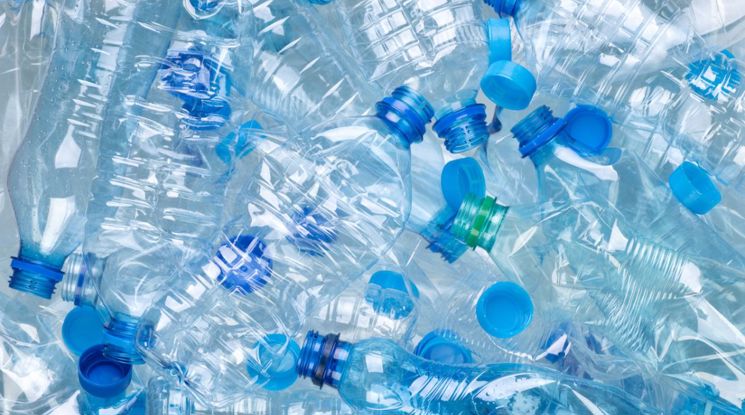Striking a Balance: Postponing DRS in Scotland – A View from Scotland Food & Drink
The recent postponement of the Deposit Return Scheme (DRS) in Scotland, due in part to the UK Government’s interpretation of the UK Internal Market Act (IMA), has given us all a chance to reflect and draw valuable lessons from what has become a high profile and contentious endeavour.
The recent postponement of the Deposit Return Scheme (DRS) in Scotland, due in part to the UK Government’s interpretation of the UK Internal Market Act (IMA), has given us all a chance to reflect and draw valuable lessons from what has become a high profile and contentious endeavour.
Firstly, it is crucial to acknowledge the substantial effort, time and costs invested by a multitude of stakeholders including government, third sector partners, Circularity Scotland, and the entire supply chain within the drinks industry. These efforts have addressed numerous challenges that will likely persist even when a scheme launches in the UK.
Collaboration and dedication have been essential. We appreciated the increasing level of dialogue between government and industry representatives, including ourselves. We valued the insights from businesses who actively contributed to the process, often at short notice. Sharing these with government, in a constructive way that appeared to be well received, has been positive. It has been important for us to work closely with other trade bodies and stakeholders, to spend time discussing implications, and exchanging information- information crucial to decision making.
This collective hard work should not be overlooked. It provides a foundation for progress. Not just in the technical aspects of how to create a fair and workable DRS, but also in how businesses and government can work together in a solution-focused way. It is encouraging to see that Scottish Government officials are continuing to seek input on the next steps for DRS, capturing the outputs and informing next steps in the UK scheme’s development. We are pleased to be involved in this as well as the New Deal for Business Group. We will be looking at regulation and policy development in Scotland. Together, we’re moving towards what could be a transformational change in how we look to improve our economy, society, and the environment through a joined-up effort.
Secondly, it is important to recognise that it is right for the Scottish Government, seeking to represent society’s desire for environmental improvements, to challenge the food and drink industry’s progress towards environmental sustainability. That challenge is one we must accept. Our own interaction with businesses - both large and small - suggests the vast majority genuinely do accept it. No business wants to see their packaging end up as litter or in landfill. Businesses want to reduce their environmental impacts, including greenhouse emissions. They want to support nature and biodiversity. Scotland Food & Drink exists, in part, to help encourage those positive changes. To do so, we work to create an environment that allows businesses to build resilience, profitability, and responsible growth.
For Scotland to become a world-leader in environmental sustainability, pushing for environmental improvement is critical. This includes reducing plastic pollution and promoting a circular economy. Building a strong international reputation in this way will increase demand for Scottish products, benefitting our businesses. The goals of Scotland’s DRS scheme - to encourage recycling, discourage littering, and enhance the overall sustainability of packaging - must continue to guide our efforts.
While recognising the pressing need for environmental improvements, we must also consider the needs and challenges faced by businesses. This is especially important in these turbulent times. We have previously talked of “headwinds”, using a sailing analogy that is still relevant. The winds persist. They are caused by the stormy combination of Brexit, the conflict in Ukraine, and the Covid-19 pandemic. Each of these major external events has placed immense strain on businesses. Their disruptive nature has left businesses grappling with hugely inflated input costs, new trading arrangements, supply chain disruptions, economic uncertainty, labour shortages, and limited time and resources. This makes it essential to strike a balance between pushing for change and ensuring adequate time and resources for that adjustment.
The postponement of the DRS in Scotland should not be viewed as a surrender or abandonment of environmental goals. It should be seen as a prudent response to the undeniable complexity of attempting to set up a scheme in a discreet section of an otherwise unified market, which is in part dependent on co-operation between all governments within the UK. For Scotland to launch a scheme that requires UK-wide interoperability, before the requirements of interoperability are known, increases that challenge.
We support a pragmatic approach that recognises the realities facing industry. We believe in working together to explore what we can still do, now, to reduce our impacts on the environment. It is with that in mind that we will be looking to drive forward solutions through proactive engagement. We have made sustainability a critical pillar of the new strategy for Scotland’s food and drink industry, which launches this month. We do not shy away from our responsibilities.
We support the pause in DRS announced by the Scottish Government. We can collectively now reassess its timeline and implementation, ensuring that all stakeholders are adequately prepared for its successful execution. This recalibration should be done through ongoing consultation between environmental bodies, industry representatives, and governments across the UK, fostering a collaborative environment that balances ambition with feasibility.
We have a chance to seize this moment to refine our strategies, build consensus, and forge a path towards a sustainable and prosperous future for Scotland, and beyond.
